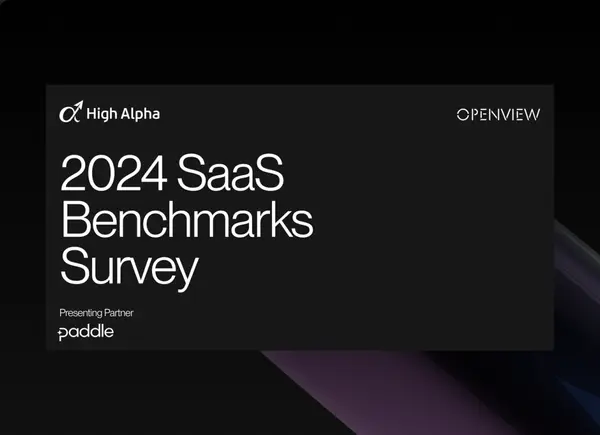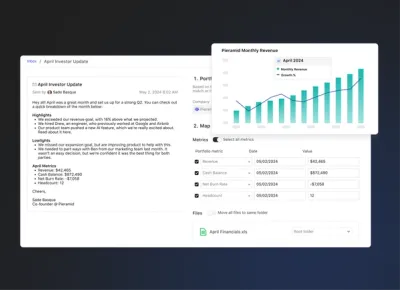
What is fund administration?
Fund administration is a third-party service that handles the accounting, cash-flow movement, and LP reporting for Venture Capital funds. Hustle Fund argues that fund admins are the most important part of a VC’s back-office operations.
Key fundamentals of funds administration in Venture Capital
Fund Admins play an essential role in ensuring critical fund operations run smoothly and also can help VC firms maintain credibility with Limited Partners (LPs). Below we outline the key fundamentals of Fund Administration.
Cash flow management and capital allocation
Fund administrators are responsible for wiring money directly to founders. The main reason fund administrators handle this process and not the GP is to protect against fraud and ensure accuracy.
Fund administrators also handle the capital transactions between LPs and the fund. This includes managing the call-down process, determining how much to request from each LP, and sending letters to each LP with wire instructions. After an exit event, the fund administrators are also responsible for figuring out how much to distribute back to each LP.
That’s a lot of separate transactions to manage which is why this can be an extremely time-consuming process. It’s also a high-stakes process with no room for mistakes. An error in the numbers can even result in a lawsuit based on gross incompetence.
Limited Partner management
Since Fund Administrators are responsible for sending communications related to capital transactions and reporting to Limited Partners, it’s critical that fund administrators keep an up-to-date list of Limited Partner contact information. The fund should share updated contact information with fund administrators as changes occur.
Reporting
Fund administration also handles the formal LP reporting process as outlined in a fund’s Limited Partnership Agreement. This typically includes putting together quarterly reports of each company’s latest valuation on a quarterly basis but the reporting requirements can vary from fund to fund based on LP requirements. To put together this reporting, fund administrators will source the latest investment information from the VC fund which is why it’s important for firms to keep investment data and fair market value changes up to date and accessible. Preparing these quarterly reports helps streamline the annual audit at the end of the year.
Visible provides investors with an easy way to maintain accurate investment records that can easily be shared with fund administrators and auditors.
Compliance assistance
An important role of a fund administrator is making sure funds are maintaining compliance with the terms outlined in their Limited Partnership Agreement (LPA). This can include terms related to the timing of distributions, what can be considered a fund expense, and the deadlines for reporting.
Audit and tax
A fund administrator will work closely with other fund service providers such as auditors and tax-related providers to ensure the fund is performing in accordance with regulations.
Related resource –> Venture Capital Audit Process: What it is and how Visible can help
Modern technology and software solutions
There are a variety of fund administrators dedicated to serving the VC industry. As discussed, VC fund administrators play a key role in VC firm operations so it’s worth taking the time to select the provider that is going to be the best fit for your firm. A great way to start is by asking your community for referrals. From there, it’s wise to interview the administrators and actually speak with the representative who will be assigned to work with your fund.
Fund administrators differentiate themselves by variables such as the level of sophistication of their tech stack, whether they offer an LP portal, and also by the quality of the service they provide. It’s important to note that the quality of service can be dependent on the representative you work with at the organization. This is why it’s a great idea to meet with the rep in advance of signing a contract.
The benefits of working with fund administrators
Working with the right fund administrator can mean fewer headaches and more time to spend finding and supporting the best investment opportunities. Below we outline the top benefits of working with fund administrators regardless of your fund structure.
Saves your firm time and resources
Working with a fund administrator instead of trying to manage accounting in-house can save a firm time and money. This is because fund administrators are laser-focused on all the back-office functions and can be less costly than adding a full-time finance expert to your team.
Provides expertise and experience
A great fund administrator can provide funds with expertise based on working with dozens or even hundreds of VC firms. This can save less experienced GPs from costly accounting, legal, or capital transaction mistakes.
Assists with investor relations management
A fund administrator should provide timely and accurate communication to LPs. When fund administrators are executing well it should make the lives of the LPs easier which reflects positively on the fund.
Provides compliance and regulatory support
Since fund administrators have worked with hundreds and potentially even thousands of VC funds of varying stages, they’ve been exposed to many of the edge cases that could cause an inexperienced fund to make costly mistakes that could hurt their reputation. Fund administrators are well-versed in Venture Capital regulation and compliance which means GPs can leverage their fund administrators’ expertise when questions arise.
When is the optimal time to start working with a fund administrator
While not always required, it’s a good idea to start working with a fund administrator before even closing your first fund. This ensures your back office operations are set up for success right from the beginning. Many fund administrators have special pricing for emerging fund managers that makes it more affordable to get started.
Looking to improve your portfolio monitoring processes at your fund?
Visible streamlines the way you keep your companies’ financial KPI’s and investment data up to date and organized so sharing key information with service providers like your fund admin becomes even easier.




